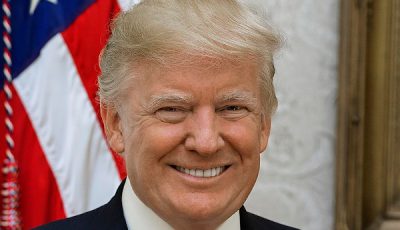Trump Loves Dictators. Might He Love ‘Cyber Sovereignty’?
 BEIJING – Regardless what one thinks of his personality or politics, or whether you approve or disapprove of his Twitter etiquette, one thing is very clear about Donald Trump: The man appreciates the appearance of strength.
BEIJING – Regardless what one thinks of his personality or politics, or whether you approve or disapprove of his Twitter etiquette, one thing is very clear about Donald Trump: The man appreciates the appearance of strength.
Whether he’s lauding the psychological impact he assumes a new aircraft carrier will have on America’s enemies, favorably comparing the strength and intelligence of Vladimir Putin to his own predecessor in the White House, or extolling the virtues of Philippines President Rodrigo Duterte’s lethal, extralegal war on drugs, Trump has made it clear he respects and admires power, or the appearance of such, above just about anything else.
Who knows; maybe his next words of praise for a foreign leader will come in the context of admiring President Xi Jinping’s growing control over Chinese cyberspace, an effort Xi sees as asserting his country’s “cyber sovereignty.”
While the chaotic first six months of Trump’s administration haven’t brought about any action on his pre-election pledge to “aggressively enforce existing federal (obscenity) laws,” and a promise to crack down on internet porn is a far cry from actively trying to squelch political speech and other expression more highly valued than porn, it’s also true porn isn’t the from the only form of expression Trump has expressed interest in regulating more strictly.
From his occasional suggestions we might need to “open up” the country’s libel laws to his (vague, nonsensical) idea of “closing parts of the Internet where ISIS is,” Trump seems to approach Constitutional safeguards on free speech as disposable facets of one of those “bad deals” he’s always complaining about the country making before he arrived to set things straight.
While Trump’s power over the internet, influence on the country’s existing speech-related laws and ability to order something akin to Duterte’s drug crackdown are (thankfully) limited and checked by the balancing powers of Congress and the courts, he can direct a shift of priorities, funding and focus for agencies like the Dept. of Justice, Federal Communications Commission, Federal Trade Commission and many others.
Just look at what Attorney General Jeff Sessions has been up to over the past several months, calling for an expansion of civil asset forfeiture and a federal crackdown on marijuana use, and reestablishing other long-abandoned aspects of the American drug policy. It remains to see what comes of any of it, but the trend is not encouraging for those who thought we finally might be moving away from some of the most counterproductive, badly failed policies that have characterized the decades-long “War on Drugs.”
Who doesn’t think Trump would like to exercise more control over speech that is critical of him? How many times has he tried to use the courts (or threatened to do so) to silence his critics?
While the Constitutional barriers to exerting such control are significant and formidable, they aren’t entirely irrevocable. When you add Trump’s clear understanding of the value of fear as a political motivator, fear that could be used to bend lawmakers to his will, you can see a recipe for a free speech disaster.
If there’s anything Trump envies in the various dictators and despots for whom he has expressed admiration, it’s their freedom to impose their will, unfettered by such annoyances as the rule of law and Constitutional checks on their authority.
“You are a good man,” Trump told Duterte during the call between the two shortly after Trump took office. He then famously added that the Philippine strongman was doing an “unbelievable job on the drug problem.”
“Many countries have the problem, we have the problem, but what a great job you are doing, and I just wanted to call and tell you that,” Trump said.
If it seems like a stretch to suggest Trump would send the National Guard or some other military or law enforcement organization on a lethal hunt for American drug dealers, weigh your skepticism against the fact he named Jefferson Sessions Attorney General — the same Jefferson Sessions who once strongly supported the idea of imposing the death penalty on repeat drug offenders and small-time dealers.
While I like to think we’re a long way from seeing American potheads being strapped into the electric chair or building a “Great Firewall” akin to China’s (a firewall Mexico would pay for the creation of, I assume), at this point I can’t say it would shock me to see the Trump administration take a shot at establishing new policies and laws that would enable such outcomes.
In lieu of the drastic measures he might like to take, there are many smaller steps Trump can take in the direction of greater “cyber sovereignty,” should he decide to take them — and I won’t be surprised if online porn, web-based money laundering, social-media-driven “radicalization” and other boogeymen of the internet age are presented as justification to a terrified, easily-manipulated American public.
Image © Gage Skidmore.
One Comment
Leave a Reply
You must be logged in to post a comment.














Pingback: Trump Loves Dictators. Might He Love ‘Cyber Sovereignty’? – TripleXers Blog